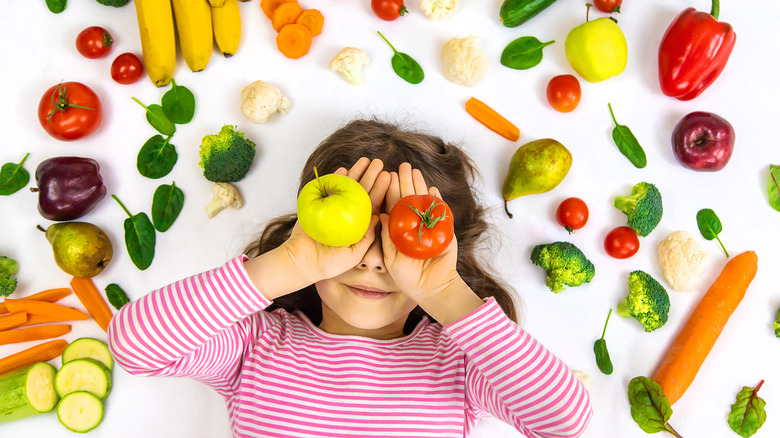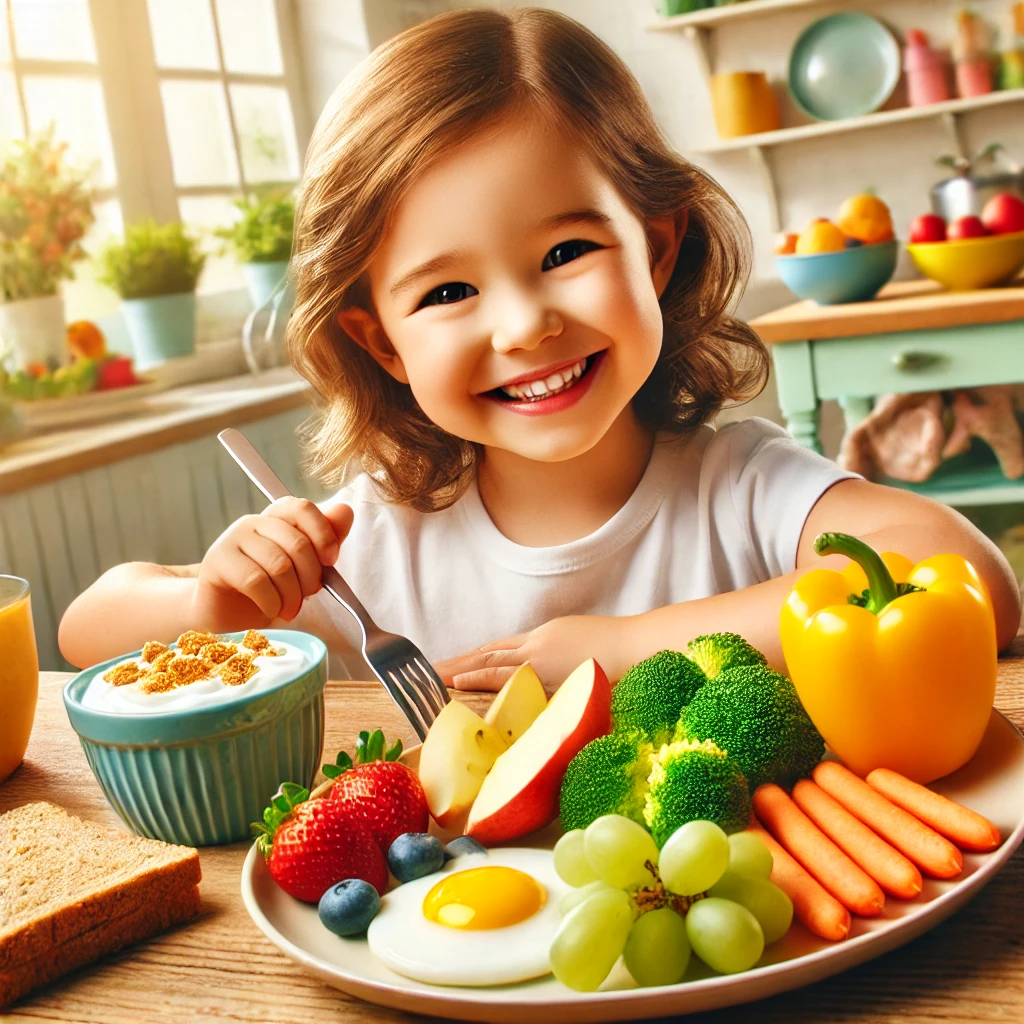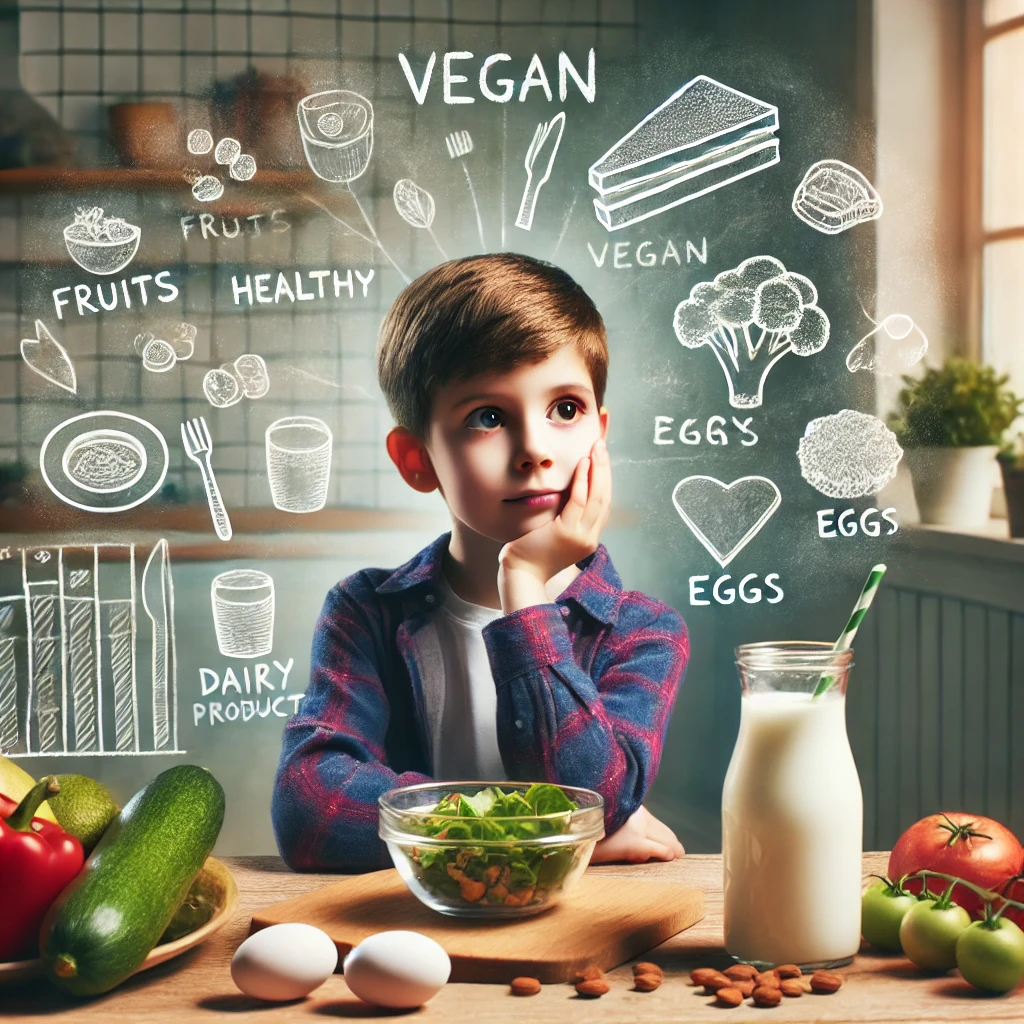Parents often wonder whether vegan and vegetarian diets are suitable for their kids. The good news is that these diets can support healthy growth and development with careful planning. Whether raising a 12-year-old vegetarian, exploring vegetable recipes, or ensuring your vegan child gets all the essential nutrients, this guide will help.
Benefits of Vegan Diet for Kids:
Vegan diets are rich in fruits, vegetables, whole grains, and legumes, which are packed with essential nutrients. Some benefits include:
- Improved Brain Development: Foods like avocados, nuts, and seeds provide healthy fats critical for brain growth.
- Boosted Immunity: A diet rich in antioxidants from fruits and vegetables helps build a strong immune system.
- Reduced Risk of Chronic Diseases: Plant-based diets are linked to lower risks of obesity and heart disease later in life.
1. Diet and Growth of Vegetarian and Vegan Children:
Ensuring proper growth means paying attention to essential nutrients:
- Vitamin B12: Found in fortified foods or supplements.
- Omega-3 Fatty Acids: Sources include flaxseeds, chia seeds, and walnuts.
- Iron and Zinc: Pair iron-rich foods with vitamin C (like oranges or tomatoes) for better absorption.
- Calories: Active children need sufficient energy. Avocados, nut butters, and whole grains are calorie-dense options.

2. Vegetarian Diet Plans for Children:
Here’s a sample meal plan for a 12-year-old vegetarian:
- Breakfast: Oatmeal with almond milk, topped with fresh fruits and chia seeds.
- Lunch: Whole-grain sandwich with hummus, cucumber, and spinach; a side of carrot sticks.
- Snack: Handful of mixed nuts and a banana.
- Dinner: Lentil soup with quinoa and steamed broccoli.
- Dessert: Coconut yogurt with a sprinkle of granola.

3. Addressing Vegan Child Deficiency:
Nutrient deficiencies can be a concern if diets aren’t well-planned. Common deficiencies include:
- Calcium: Ensure fortified plant-based milks are part of daily meals.
- Vitamin D: A supplement or safe sunlight exposure may be necessary.
- Protein: Include diverse plant-based proteins like beans, lentils, and quinoa.

4. How a Vegetarian Diet Supports Child Development:
A well-rounded vegetarian diet promotes:
- Physical Growth: Nutrient-dense foods support bone and muscle development.
- Cognitive Skills: Omega-3s and whole grains enhance memory and focus.
- Healthy Weight Management: Plant-based diets are naturally lower in unhealthy fats and added sugars.
5. Tips for Raising Vegetarian Children:
- Introduce Variety Early: Expose children to a wide range of plant-based foods.
- Involve Kids in Meal Prep: Encourage them to help choose and prepare meals.
- Consult a Nutritionist: Get professional advice to create a balanced meal plan.
- Monitor Growth: Regular pediatric check-ups ensure your child’s dietary needs are met.
Key Takeaways:
- Vegan and vegetarian diets can provide all the nutrients kids need with proper planning.
- Focus on nutrient-rich, plant-based foods to support growth and development.
- Regular checkups with a pediatrician or nutritionist ensure your child’s diet meets their needs.
Conclusion:
A well-planned vegan or vegetarian diet offers numerous benefits for active children, including improved brain development, healthy growth, and reduced risks of chronic diseases. Whether crafting a vegetarian diet plan for a 12-year-old or addressing potential vegan child deficiencies, careful planning, and professional guidance can help meet all nutritional needs. With the right approach, vegetarian and vegan diets can support both the physical and cognitive development of growing children, ensuring a healthy and balanced lifestyle.
FAQS:
Is It Healthy for a Child to Be Vegetarian?
Yes, a vegetarian diet can be very healthy for children. Key components include:
- Protein: Incorporate beans, lentils, tofu, and eggs (if included).
- Iron: Green leafy vegetables, fortified cereals, and dried fruits are excellent sources.
- Calcium: Opt for plant-based milk fortified with calcium and vitamin D.
Can kids be on a vegan diet?
Yes, children can thrive on a vegan diet if it is well-planned to include essential nutrients like protein, calcium, iron, and vitamin B12. Regular monitoring by a healthcare provider is recommended.
Is a vegan diet good for children?
A vegan diet can be good for children as it emphasizes nutrient-rich fruits, vegetables, and whole grains. However, proper planning is essential to prevent deficiencies in nutrients like vitamin B12, iron, and omega-3s.
What are some recommendations for athletes that follow vegetarian or vegan diets?
Athlete kids on vegetarian or vegan diets should focus on high-protein foods like lentils, tofu, and quinoa. Include calorie-dense options like nuts and seeds, and ensure adequate hydration and recovery meals with balanced macros.
What is the difference between vegetarian and vegan for kids?
Vegetarian diets include dairy and eggs, while vegan diets exclude all animal-derived products. Both can support healthy growth with proper planning but require different approaches to meet nutritional needs.
What are the benefits of a vegetarian diet for children?
A vegetarian diet can support healthy growth, provide plenty of fiber and vitamins, and reduce risks of chronic diseases like obesity. It’s generally lower in unhealthy fats and processed foods.
Are vegan diets okay for kids?
Yes, vegan diets are okay for kids with careful planning to include key nutrients. Regular checkups with a pediatrician or nutritionist help ensure they meet growth and development milestones.
External Resources:

Empowering parents to raise happy, confident kids. Get practical parenting tips and advice on our blog, Smart Parent Guides.
